Search Results
Showing results 1 to 20 of 20
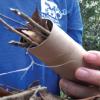
Discovery Time: Bugs
Source Institutions
In this activity, young learners (2 years and up) explore the world of insects and other "bugs" by Making a "bug hotel" with recycled objects.
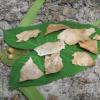
Discovery Time: Turtles
Source Institutions
In this activity, young learners (2 years and up) explore turtle basic adaptations and biology. Turtle external anatomy is explored by "building" a turtle with a nature collage.
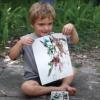
Discovery Time: Dirt
Source Institutions
In this activity, young learners (2 years and up) explore dirt and what is in it by painting with mud.
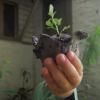
Discovery Time: Wildflowers
Source Institutions
In this activity, young learners (2 years and up) explore flower and plant biology and pollination by planting seed in a homemade seed starter.
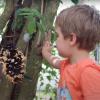
Discovery Time: Birds
Source Institutions
In this activity, young learners, (2 years and up) explore bird behavior and adaptations by providing a homemade bird feeder and observing birds.
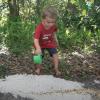
Discovery Time: Tracks
Source Institutions
In this activity, young learners, (2 years and up) explore animal behavior and adaptations by providing a "track trap" and observing the signs animals leave behind.
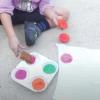
Discovery Time: Trees
Source Institutions
In this activity, young learners (2 years and up) explore tree structure and biology. Tree products are explored by painitng with fruit.

I Spy, Describing Insects
Source Institutions
In this activity, learners observe and describe the physical and behavioral characteristics of insects, including crickets.
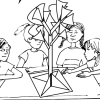
Build a Tree
Source Institutions
This activity (on pages 13-18) has learners build a model tree and then figure out how to make their tree stand up by itself.
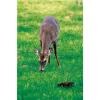
Who Eats What?
Source Institutions
This activity is on page 10 (continued on the right side of page 11) of the pdf, part of the Forest Animals Discovery Box. In this game, learners act out the food web.

Is it a Fish?
Source Institutions
This activity is on page 8 of the pdf, part of the Sea Life Discovery Box. This is an activity exploring the characteristics of fish.

The Desert Blooms!
Source Institutions
This activity attempts to clear up the common misconception that deserts are always hot, totally dry, and uninhabitable.
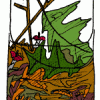
Decomposition Column
Source Institutions
In this activity, learners turn empty 2-liter bottles into a see-through compost container.
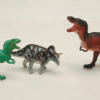
Join the Dinosaur Age
Source Institutions
In this activity, learners rotate through several learning and play stations to explore dinosaurs and paleontologists.
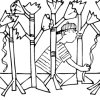
Rain Forest in Your Room
Source Institutions
This activity (on pages 19-24) introduces learners to the rain forest's layers—emergent, canopy, understory, and forest floor—and has learners make paper lianas (vines that live attached to trees) and

Hungry as a Caterpillar
Source Institutions
In this indoor and outdoor activity, learners discover that insects grow and develop as do all living things, going through a process known as complete metamorphosis.

Zoo Calendar
Source Institutions
Use the Zoo Calendar (page 1 of PDF) to involve learners in interdisciplinary, whole language, and writing activities about ecological concepts.

Invent a Plant
Source Institutions
In this activity, learners construct models of plants that are adapted to living under specific environmental conditions.

Patterns and Relationships: Here, There & Everywhere
Source Institutions
In this math activity, learners use a variety of sensory modalities to gain experiences with identifying, describing and creating repeating patterns.

As Straight as a Pole
Source Institutions
In this engineering activity (page 3 of PDF), young learners investigate how a pole can be made stable by “planting” its base in the ground or adding supports to the base.
